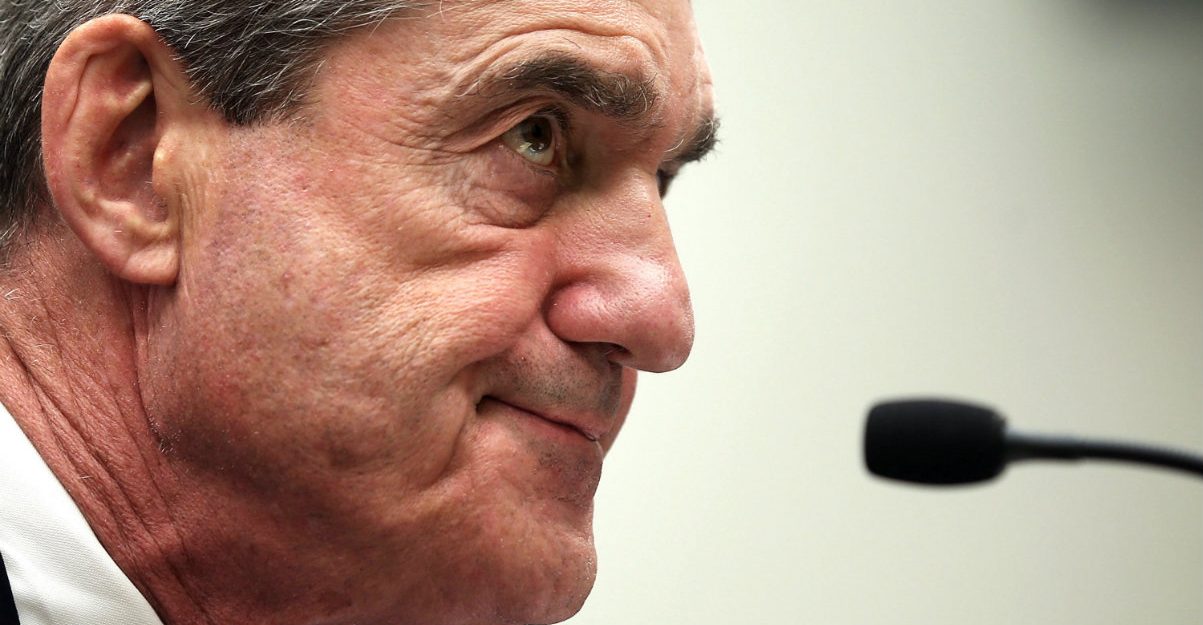
One of the Russian companies indicted by Robert Mueller over its alleged involvement in an infamous trolling operation during the 2016 presidential election filed a motion on Thursday chock full of jabs at the special counsel’s legal knowledge and respect for the rule of law. And in the process, they casually note that Mueller has apparently collected a “nude selfie” of someone.
Concord Management and Consulting LLC’s attorney Eric Dubelier makes the nude selfie claim near the end of the defendant’s latest filing in support of their motion to compel discovery.
“Could the manner in which he collected a nude selfie really threaten the national security of the United States?” Dubelier asks out loud.
Law&Crime reached out to Dubelier and the other attorney listed on the filing for clarification about who exactly took the selfie and how it possibly pertains to the case, but no response was forthcoming at the time of publication.
Aside from any potentially erotic photography, the defense motion sets a typical tone early on with a series of acrid one-liners and blistering attacks on Mueller and his legal theories:
In this first-of-its-kind, make-believe case the Special Counsel now seeks to completely obliterate any remaining rights of Concord to defend itself, and in typical fashion provides only completely misleading case authority for the remarkable proposition that he should be able to continue to whisper secrets to the Court. Since the Special Counsel has already gotten away with this once as he notes in his Motion, this Opposition is likely fruitless, but object we must both for Concord and every other defendant to whom the Special Counsel believes the laws and rules of the United States no longer apply to his novel adventures.
At the core of Thursday’s defense motion is the argument that Mueller is unlawfully keeping “millions of pages of non-classified discovery” materials away from the defendant’s own eyes. At issue here is the fact that Mueller is attempting to have ex parte–one party only–discussions with the U.S. District Court for the District of Columbia regarding continued discovery in the case. Concord Management describes Mueller’s proposed limits as a bid for “the Court [to] deny all allegedly sensitive discovery to Concord.”
Dubelier charges that Mueller is performing quite a bit of legal goalpost moving in service of this ex parte effort.
“The Court will recall that from the outset the Special Counsel maintained that there was no classified information in this case,” the filing notes. “In fact, the Special Counsel continues to concede that the discovery in this case contains no classified information. Instead the Special Counsel asks the Court to accept secret ex parte communications from him to support the unprecedented argument that the Defendant itself cannot view millions of pages of non-classified discovery. This request is just another squinch to support the novelty of this entire proceeding. Undersigned counsel has been unable to identify any reported case where a corporate defendant was denied access to discovery, as the Special Counsel seeks here. Similarly, there is no reported case to support the Special Counsel’s instant motion.”
Such a veil of secrecy, Dubelier notes, “is not how criminal cases proceed in the United States.”
The Russian firm’s attorneys also disdainfully rubbish two cases cited by the special counsel’s office as not particularly relevant or helpful.
“A first year law student would likely question how [one such case] helps the Special Counsel here,” Dubelier argues at one point.
Next it looks as if the Special Counsel tossed in [the other such case], just to have a case from this Circuit,” Dubelier ponders later on. “It is reasonable to ask if he just threw a dart at the Federal Reporter.”
[image via Alex Wong/Getty Images]
Have a tip we should know? [email protected]